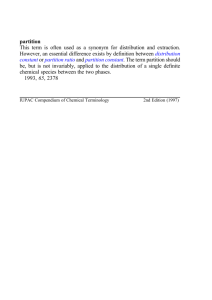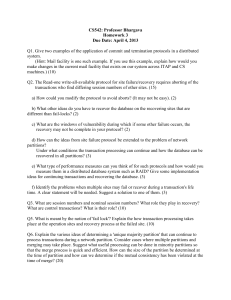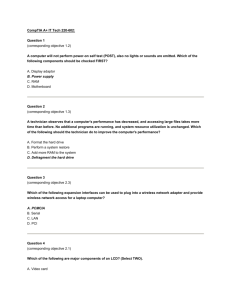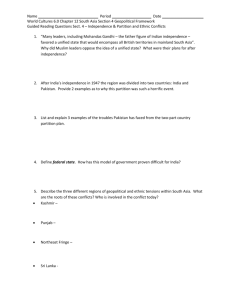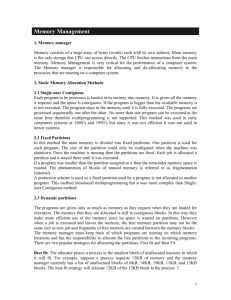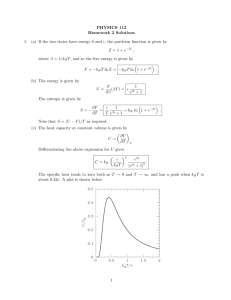Partitioning in Databases
advertisement
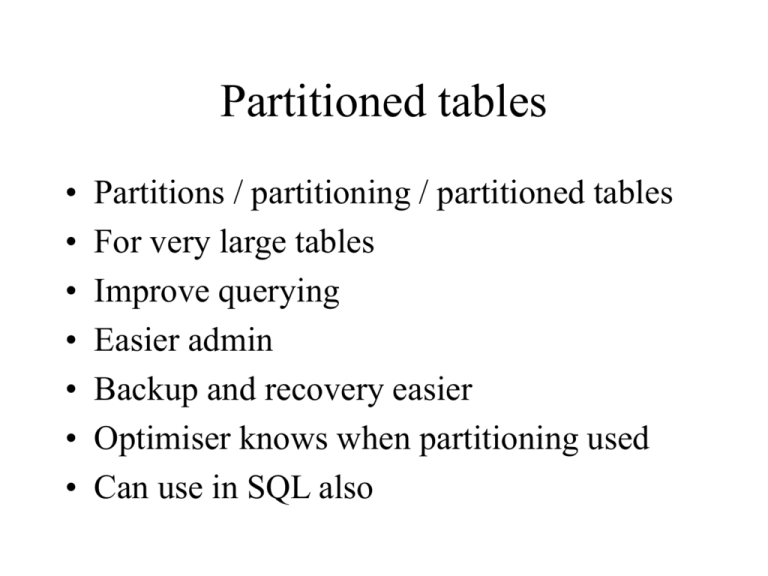
Partitioned tables • • • • • • • Partitions / partitioning / partitioned tables For very large tables Improve querying Easier admin Backup and recovery easier Optimiser knows when partitioning used Can use in SQL also Creating a PT • Create table FRED ( ID number name varchar2(25) age number constraint fred_pk primary key (ID) ) partition by range (age) (partition PART1 values less than (21) partition PART2 values less than (40) partition PART3 values less than (maxvalue) Warning • Specification of partition is exclusive • Maxvalue is a general term to pick up anything that failed so far • Works for text as well as number Hash partition • Only in Oracle 8i and above • Uses a numerical algorithm based on partition key to determine where to place data • Range partition = consecutive values together • Hash = consecutive values may be in different partitions What is Hash? • Imagine 8GB table – split in 8 / 1 GB • No intuitively clever way to split data • Or obvious way is totally imbalanced – 1 partition 7BG + 7 140MB – Huge variations in performance • Randomise breakdown of data so objects of similar size – Select one column – Select number of partitions – Oracle does the rest! Mechanics of hashing • Each record is allocated into a bucket based on key value – e.g. Name = Joe • Applying the hashing function to the value Joe uniquely returns the bucket number where the record is located: • E.g. using prime number – – – – divide KEY by a prime number If text, translation into numeric value using ASCII code use remainder of the division = address on the disk if record already at same address - pointer to overflow area. Hash partition - SQL Create table FRED ( Name varchar2(25) primary key, Age number, Years abroad number ) Partition by hash (age) Partitions 2 Store in (Part1_fred, Part2_fred); (Not compulsory) Sub-partitions Create table FRED ( Name varchar2(25) primary key, Age number, Years abroad number ) Partition by range (years abroad) Subpartition by hash (name) Subpartitions 5 (partition Part1 values less than (1) partition Part2 values less than (3) partition Part3 values less than (6) partition Part4 values less than (MAXVALUE)); Indexing partitions • Performance requirements may mean Partitioned tables should be indexed (separate issue) Create index FRED_NAME on FRED (name) Local Partitions (Part1, Part2, Part3, Part4) • Local means create separate index for each partition of the table • Alternative is to create a global index with values from different partitions • Global indexes cannot be created for Hash partitions
